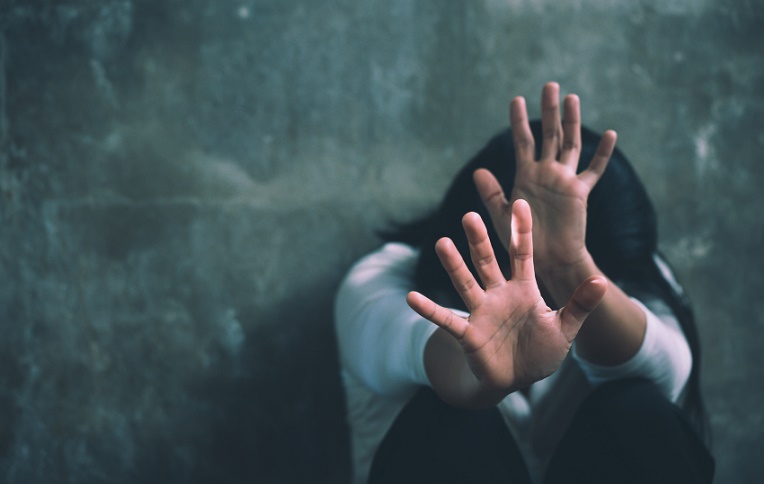
Wayne State University School of Medicine faculty member Angela Jacques Tiura, Ph.D., is among a group of six researchers from the Society for Behavioral Medicine hoping to transform public policy to fight an astounding rise in domestic abuse in the United States during the COVID-19 pandemic.

“This number is only expected to rise if we do not remove barriers to getting intimate partner violence survivors access to health care services,” she said.
Read “Ensuring Safety and Support for Intimate Partner Violence Survivors during the COVID-19 Pandemic” at https://bit.ly/38lrj28.
Studies show that domestic abuse cases have risen 300% in the U.S during the pandemic, which has required shelter in place guidelines and social distancing, the brief asserts. Its writers recommend strengthening the Family Abuse Prevention Act to include emergency protection orders for survivors of intimate partner violence, remote assistance to file protection orders and waived fees for restraining orders. They also recommend lawmakers increase funding and support for intimate partner violence survivors during the pandemic by passing the HEROES act and expanding the Violence Against Women Act.
Dr. Tiura is a researcher and associate professor in the Department of Family Medicine and Public Health Sciences, who also teaches students in the Master of Public Health degree program.
“Analyzing policies for their health impacts, especially on underserved and marginalized community members, is an important piece of the work on public health professionals,” she said. “Coincidentally, at about the same time I began involvement with this particular position statement, my first policy statement, I was introducing my Social Basis of Health students to the basics of writing a policy brief.”
Her research focuses on the interplay of dating and sexual violence – victimization and perpetration – and addictive behaviors, especially alcohol use, as well as other behaviors.
“This policy statement advocates for victim support and resources,” she said. “The pandemic has brought on so many stressors beyond the immediate virus itself. Some people – primarily and much more often women – are at higher risk for victimization by virtue of being stuck somewhere with a violent partner, and if victims seek help, assistance may be more difficult to access than usual.”
Although she hasn’t collected this type of data during the pandemic, “rates of violence against women are alarmingly high when it’s not even COVID,” she said.
For a study detailed in the paper, Victimization and Food Addiction Symptoms: Direct and Indirect Effects Through Emotion Dysregulation, Impulsivity, and Loss-of-Control Eating, published this month in the Psychology of Women Quarterly, Dr. Tiura and team recruited a sample of 313 single college student women age 18 to 25 interested in dating men and not in treatment for psychological distress, substance use, eating disorders, or weight loss, from data collected in 2017. Dating and sexual violence victimization were not part of the inclusion or exclusion criteria.
They found that since age 14, 15% of women participants experienced physical dating violence victimization, 21% experienced threatening dating violence victimization, 18% reported relational dating violence victimization and 78% reported emotional dating violence victimization. Sixty-one percent reported some form of sexual violence victimization.
Dr. Tiura has been a member of the SBM since 2016, and became involved with the Violence, Trauma and Health Special Interest Group in 2018, and is now its outreach coordinator.